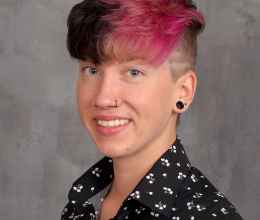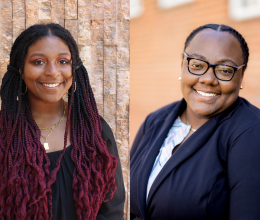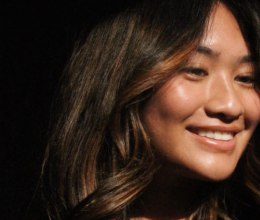
From 7:30 a.m. to 5:00 p.m., Monday through Friday, the Colorado State Capitol building is open to the public. It wasn’t until I got involved with the ACLU of Colorado’s PEAK (Public Education, Activism and Know your rights) Week earlier this year that I came to understand what that could mean for my ability to advocate for comprehensive change.
Over the course of the PEAK Lobby Day at the State Capitol, I connected with members of my community, lobbied against a punitive drug-induced homicide bill, and witnessed my peers passionately testify for or against proposed bills that could impact their communities during legislative committee hearings.
Seeing fellow students testify at these hearings was especially impactful. Young people are consistently made to believe that their voices are less valuable than those of older folks, particularly in political spaces. I’ve experienced this sort of belittling from administrators as part of a student organization I’m involved in.
Every chance that we have to demand a presence in these conversations is a chance to restructure this power dynamic and underline the fact that young people have well-informed, invaluable perspectives. That’s exactly what the students at the Capitol did.
Despite the jargon riddling the bills, my peers developed an understanding and spoke persuasively of their convictions, just as eloquently as any legislator could.
When I started as the ACLU of Colorado’s newest Communications Intern in September, I knew that I wanted to channel my focus into a project grounded in a sense of community that echoed the energy of my PEAK experience. My goal was to create a space for folks to come together and talk, face-to-face, about their experiences surrounding social justice.
Ideating up from this foundational purpose, and factoring in the then-upcoming 2023 election, I decided that I would organize a nonpartisan ballot party and community conversation. At this event, participants would have the opportunity to bring their ballots and fill them out alongside their peers, all while engaging in a casual dialogue about voting. This seemed especially relevant considering the presence of myriad state and county ballot measures that voters would decide on.
Oftentimes, these ballot questions seem to be formulated with the most confusing language possible. This deliberate obfuscation can exacerbate systemic inequities that may block some folks from voting, or from understanding essential information needed to form an opinion on a particular issue.
This obstacle resembles the one that kept the thought of making my voice heard in the Capitol unfeasible prior to PEAK. There are many structures in place — from the grandiosity of the marble-and-gold Colorado Capitol filled with men in suits to the mystifying jargon of ballot issues and bills — that, in my view, exist to preserve oppressive hierarchies, designed to make political power seem out of reach for many.
Working to counter this narrative in my work at the ACLU of Colorado, I reached out to young people and student organizations across Colorado Springs. I spread the word about the ballot party and community conversation event and prepared a presentation and subsequent list of voting-centered questions for folks to discuss. With these resources, I hoped to foster an environment capable of breaking down some of the obstacles that people are up against when trying to vote.
Following this planning phase, the day of the event arrived. A colleague and I drove to the Springs and organized the venue space, preparing a table of snacks and stickers for people to take home, waiting for participants.
Altogether, one person showed up. No more and no less.
We forwent the presentation and shifted gears to dig into person-to-person dialogue with the woman who attended. We exchanged stories and experiences, engaging in meaningful conversations about social justice.
Admittedly, there wasn’t the level of turnout that I was anticipating for the ballot party. But the opportunity that arose for one-on-one conversation added an unparalleled depth to my experience. The profundity of sharing that came out of the highly personalized environment allowed a sense of solidarity and connection to emerge, recentering lived experiences in political spaces historically dominated by a powerful, often disconnected few.
Throughout my time at the ACLU of Colorado, I’ve experienced the possibility that can surface out of the unexpected. I’ve centered foundational skills necessary in encouraging interpersonal dialogues. I’ve engaged in conversations aimed at making political spaces more accessible.
My intention looking forward is to continue the conversation, to call out guised barriers to accessing political power, and to grow meaningful connections, recognizing that we are all inimitable in the fight to disrupt oppressive power structures.


